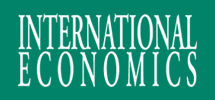
<< N°165
| N°165 | ||
| Issue Q1 2021 | ||
| Income inequality, human capital and terrorism in Africa: Beyond exploratory analytics | ||
|
Kazeem B. Ajide Olorunfemi Y. Alimi |
||
This study uncovers the effect of income inequality on terrorism, delineated with four distinct markers: domestic, transnational, uncertain, and total, respectively, intermediated with the role of human capital, on a panel of 34 African countries, over the period 1980–2012. Thus, rather than presenting correlation analyses implied by exploratory analytics among these key variables of interest, this study further employs a zero-inflated negative binomial regression estimator due to the preponderance of zero values of the terrorism data. The following findings are consistently established. First, income inequality remains a substantive predictor of terrorism across the model specifications, with the exception of transnational terrorism. Second, human capital variables exert a positive first-order effect on both domestic and total terrorism. Third, the marginal impacts of interactions between human capital measures and income inequality indicators are negative at the higher levels of educational attainment. These findings remain robust in the presence of endogeneity concerns, time and country-specific effects, alternative estimators, and regional effects, respectively. On the policy front, eliminating the gaps in income inequality remains an effective policy antidote to quell the ember of angers and frustration that may aggravate into arm taking by the aggrieved.
|
Abstract |
|
| Income inequality ; Terrorism Human capital ; Negative binomial regression ; Africa ; | Keywords | |
| D31 ; E22 ; O15 ; Z00 ; N97 ; | JEL classification | |
| Order form |